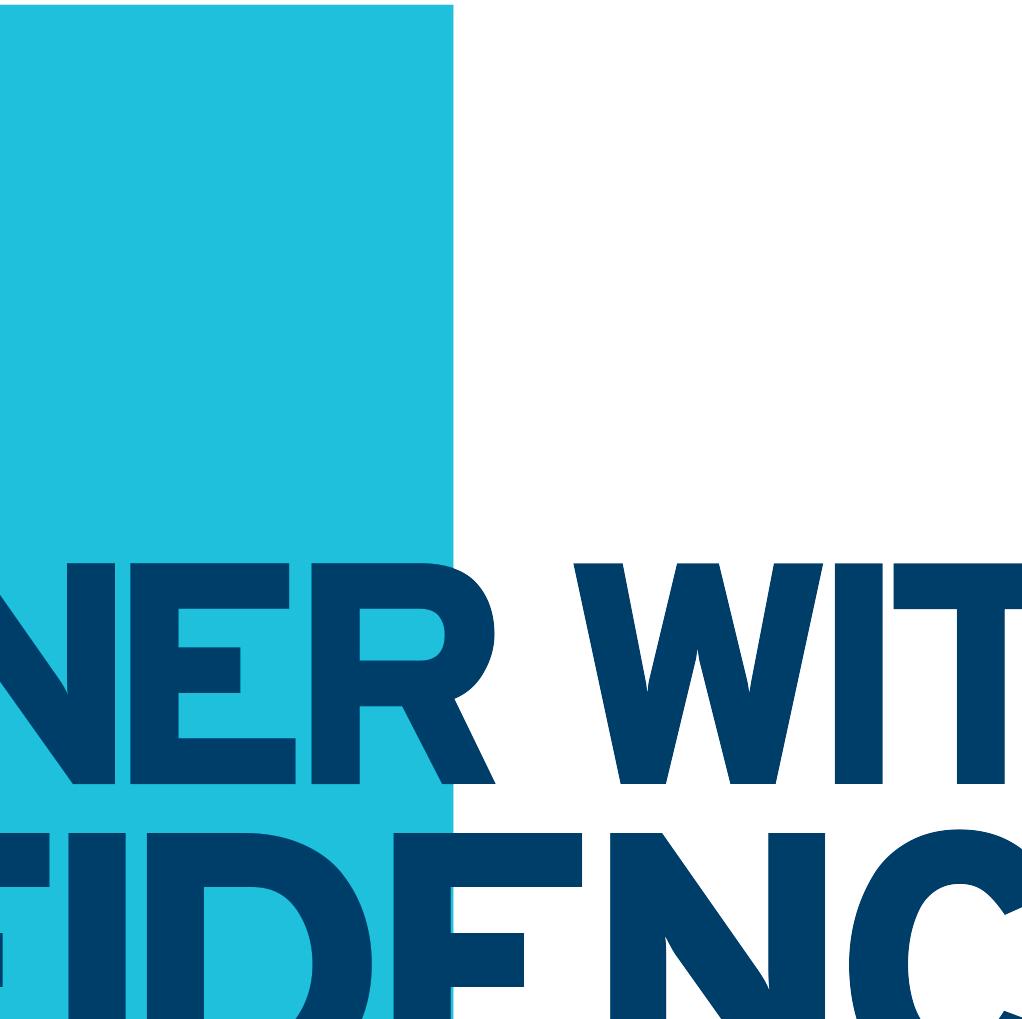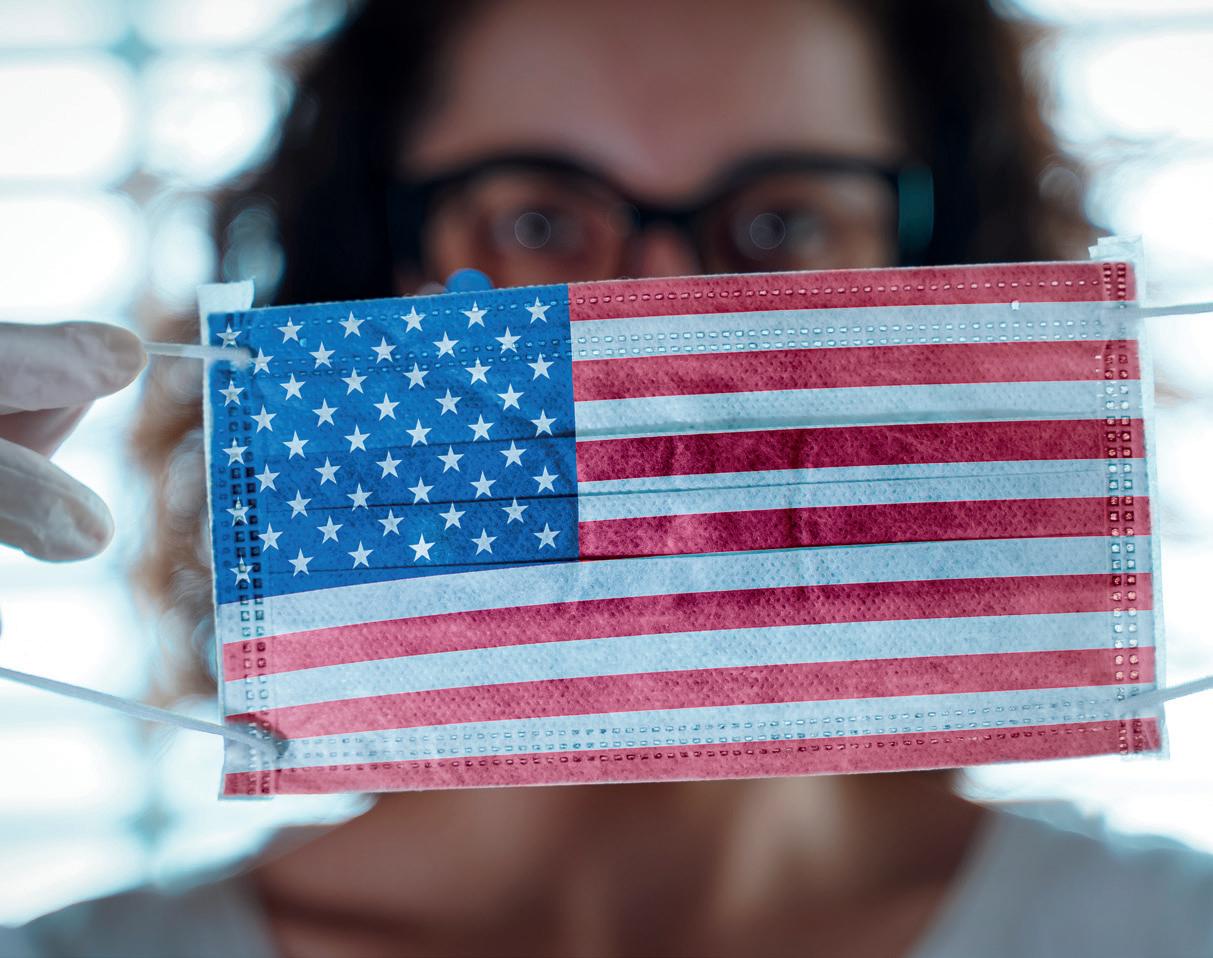
18 minute read
FROM THE TOP
FROM THE TOP: OFFSHORE? UNSURE
After the American Gaming Association’s call for US media outlets to stop promoting offshore sportsbooks, Tim Poole analyzes the difficulties posed by sports betting’s blurred lines.
In a previous edition of Gaming America, I examined whether US operators should address the issue of offshore competition head on through aggressive advertising, educating the customer and informing them of the various cons of using an illegal sportsbook. Since then, American Gaming Association CEO (AGA) Bill Miller has also written about the illegal market and what’s needed to drive it out. Right now, as Miller points out, the offshore industry’s existence isn’t the most immediate problem – it’s that mainstream media outlets across the US are promoting it.
How can a US bettor know a product is illegal if it is mass marketed on mainstream TV channels? This is the very juxtaposition perpetually facing the regulated sports betting market in the US. While regulated companies will aim to follow the rules dictated by their license, and crucially pay taxes on their earnings, offshore operators have an unfair and illegal advantage by fulfilling neither. But how can a player distinguish between right and wrong if both are advertised by the likes of Fox Sports, Reuters, Yahoo Sports, the Wall Street Journal and more?
That’s why Miller is correct to call on the mainstream, or any form, of media first and foremost. How can dismantling the illegal market, difficult enough as it is, be achieved with widespread disregard from national media outlets reaching millions of fans across the US? According to the AGA CEO, an estimated 100 million American adults will be able to place a legal sports bet in their home state by the end of 2020. Yet the sum of illegal wagering remains a considerable threat to the regulated market share.
He wrote: “PASPA never came close to doing what policymakers intended. Instead of protecting competition, the failed law
perpetuated a massive, $150 billion-a-year illegal marketplace that left athletes and consumers vulnerable. Those protections only exist when sports betting can come out of the shadows and under the watchful eyes of experienced gaming regulators, which is why the American Gaming Association remains committed to expanding these safeguards today.
“Unfortunately, many consumers are still unable to distinguish between safe, legal US sportsbooks and unregulated offshore operators. This becomes especially difficult when mainstream publications continue to legitimize the dangerous illegal market, blurring the lines between legal, regulated sports betting and the predatory, unregulated offshore market. One doesn’t have to look too far to find national outlets citing offshore books in their recent coverage, with some pieces reading like they’re copied and pasted from a PR pitch.”
The distinction between legal and illegal operators is “essential,” according to Miller, with the sports betting space one of the most highly regulated industries in the US. The illegal sports betting market, by comparison, “funds nefarious activity like money laundering, drug trade and human trafficking” while lacking “any responsible gaming measures,” he adds. With a “storied history” of failing to pay winners and failing to put up safeguards for financial data, Miller and the AGA are deeply concerned by the offshore sector.
“HERE’S THE STARK DIFFERENCE IN PLAIN TERMS: ILLEGAL, UNREGULATED SPORTSBOOKS ARE PREDATORY. RESPONSIBILITY FOR EDUCATING THE PUBLIC IS SHARED AMONG EVERYONE IN THE SPORTS BETTING ECOSYSTEM. MEDIA ORGANIZATIONS SHOULD DO THEIR PART, TOO.” – BILL MILLER
As ever, there’s no easy remedy. But it’s time, perhaps, to take the first stages of a deep dive into exactly why media outlets continue to promote offshore books. Whether through the AGA or anyone else, a degree of data collection within these media organizations would be helpful to no end. How useful, for instance, would a survey be to address whether executives, employees and viewers even know the difference between a legal and illegal sportsbook, or whether these outlets have actually negotiated deals in place with these companies?
Even as the right course of action legally, the reality is media outlets may need persuading to drop the odds of an unregulated book from their TV feeds. How can the sector appeal to them in trying to enact this change? Perhaps TV channels and online blogs link to sites simply because they offer better odds – odds enabled by reduced costs without any taxation or compliance department salaries. The first step is always to identify exactly what the industry is dealing with, and why.
In the case of Fox Sports, it’s perhaps doubly perplexing. Not only does the company share a brand name with Fox Bet – a licensed operator owned by Flutter Entertainment – parent company Disney owns a stake in regulated operator DraftKings. Imagine if, by contrast, Fox (or any other mainstream broadcaster) used its platform as a force for good in this area. Instead of promoting the odds of illegal companies, how powerful would it be if Fox Sports displayed the message ‘Don’t bet with illegal bookmakers’ regularly across its newsfeeds?
As Miller initially pointed out, the origin of this dilemma was PASPA itself. For years, media organizations would advertise illegal odds as these were the only ones available if they wanted to discuss betting content. Now that sports betting has been legalized across numerous US states, however, we’re seeing a delayed response to the modern-day betting environment. Rather than a lack of knowledge, or having an agreement in place with said offshore books, perhaps media organizations simply haven’t had time to adapt yet. Here’s where the AGA itself can further push the agenda, as it is trying to do.
The whole industry can help, though, and this is where more direct marketing and advertising can still play its part. If players have gotten used to better odds and greater convenience with the same illegal bookmakers down the years, what can the industry do to tempt them out of this bubble? As well as signing sponsorships and marketing partnerships with sports teams and sports leagues, perhaps operators can sign agreements with more media firms, like MGM has done with Yahoo. But maybe they could also include a new clause – any advertising of illegal bookmakers is to be penalized with the contract being made null and void. That would make companies sit up and listen.
DEBATE: AN ACCELERATION OF DIGITALIZATION

Will US gaming now truly embrace digitalization as a result of the COVID-19 pandemic? Iqbal Johal, Owain Flanders and Tim Poole put their best cases forward.
IQBAL JOHAL: CONSENSUS CRUCIAL TO DIGITAL TRANSFORMATION IN THE US
When it comes to the online gaming industry, it’s fair to say the US has lagged behind the majority of other major markets until now. It was only two years ago that PASPA was overturned to legalize sports betting, with the vertical now legal in 22 states. Many states still don’t allow any form of online gaming either, in stark contrast to European markets where online betting is crucial for operator revenue. Between October 2018 and September 2019, the total gross gaming yield for online betting in Great Britain was $2.62bn, according to statistics from the Gambling Commission.
However, with such a large reach, once online becomes even more prominent in the US, there will be no stopping it. And maybe it’ll take a global pandemic to force that acceleration.
It’s no secret casino operators have incurred huge losses as a result of the COVID-19 outbreak. Properties were forced to close in mid-March and began reopening at the start of June, but under strict health and safety measures. A case in point is the 99% drop in year-on-year revenue generated by casinos in Nevada for May, down to $5.8m. Considering Las Vegas is known worldwide as one of the most popular gambling hotspots, the figures demonstrate the need for operators to recoup their losses from an alternative revenue stream.
During a virtual industry conference in April, a panel discussed the effect the coronavirus has had on the mostly land-based US lottery market, suggesting it could bring about a digital transformation. While sports betting is available in Oregon, it’s only through the lottery ‘Scorecard’ app via the Chinook Winds tribal casino. Oregon State Lottery CEO Barry Pack said he believes the pandemic will force a digital transformation a lot quicker than it would have come previously.
The fact state legislators are facing a $1bn shortfall means any negative opinions on online and mobile gaming will surely change, knowing the vertical is an effective method to make up some of the shortfall. Maryland Lottery and Gaming director Gordon Medenica agreed with Pack, saying he thinks “this could be a sea change for the lottery industry” and that “we’re probably more capable of enforcing responsible gaming guidelines in a digital environment.”
While relying on bricks-and-mortar venues has long been a tradition in the US industry, the time has surely come to join the digital age.
But there are barriers that stand in the way.
As we touch upon in our tribal sports betting feature in this edition of Gaming America, the topic is a complex one with stakeholders often unable to reach a consensus. California has the potential to be a booming sports betting market worth up to $3.2bn, and there are currently two separate bills being pushed, one by the tribes. The tribes protecting their own interests – rightly so – is the main barrier to sports betting being

legalized in the state, according to Bill Pascrell III. Tribes getting on board with legislation is key to getting sports betting, and indeed online betting, passed in several states, but that’s up to the relevant stakeholders to find some common ground.
The realization of what a digital transformation can bring to the US gaming industry is now apparent because of the impact COVID-19 has had on land-based operations. Sadly, it’s not as simple as a complete move to online overnight and it might take lengthy negotiation, but the positives of such a move are there for all to see.
OWAIN FLANDERS: AN OVERDUE SHIFT TO CASHLESS
“Necessity is the mother of invention.” If you tuned into one of the many digital industry summits organized during the COVID-19 pandemic, I’m sure you heard these words uttered once or twice by industry experts.
While it might be an overused cliché during these unprecedented times, there’s also plenty of truth in it. It’s something we saw across the industry as COVID-19 restrictions forced operators and suppliers to think on their feet. The lack of sport and closure of land-based operations led to a number of drastic business moves. There have been investments in alternative verticals such as esports, online casino and poker, a string of mitigating actions for cost-cutting and even instances of drive-thru betting services.
One shift we've seen across the globe as a result of the pandemic is the transition toward digitalization – a topic particularly prominent in the US. This shift incorporates a number of elements. Of course, there’s the migration from land-based casinos and sportsbooks to online or mobile, but one factor that perhaps generates less attention is the transition toward digital payments.
As land-based betting properties reopen across the US, it’s evident that while cash may still be “king,” the payment of that cash must go through a modernization process – one perhaps well overdue. This shift, which is a result of safety concerns over the handling of physical cash, has prompted payment companies to redouble their efforts in marketing cashless systems toward land-based casinos.
From speaking to those within the payments industry, it’s evident that cashless systems have been generating a lot of interest from retail gaming businesses in the US for some time, and it’s not difficult to see why. For land-based operators, going digital with payments has a whole host of benefits in both cost saving and customer protection.

One central issue with land-based casinos is their inability to apply the same responsible gambling measures we see in the online space. Although memberships are usually a pre-requisite for anyone wagering at a casino property in the US, it’s significantly easier to retain anonymity betting in person than online. Online operators also offer customers an array of safer gambling tools through which they can limit their own spend. With the absence of previous financial records, this is difficult to apply in a physical casino dealing mainly in cash.
By digitalizing payments, land-based casinos are able to take these same safer gambling features found online and apply them in the physical space. Deposit limits can be set for customer accounts and exclusions can be applied to prevent certain bank accounts from depositing in gambling establishments at all. With that in mind, the transition to cashless makes perfect sense from a safer gambling perspective.
While COVID-19 may have been the straw that broke the camel’s back, the shift toward digital payments has been approaching the land-based industry in the US for some time. For that reason, it can be assumed this is one transition that's here to stay for the foreseeable future.
That said, it’s likely cashless will be integrated rather than replacing cash gaming altogether. Once safety concerns related to COVID-19 subside, cash will most likely return, albeit in a reduced sense. In the words of Samuel Barrett, director of gaming at Trustly, who spoke with Gambling Insider for its ‘Future of Cash’ feature: “The end of cash is definitely not anytime soon.” While we can certainly expect more integration with cashless gaming, there will always be those traditional gamers who prefer to handle their payments and winnings in paper.






TIM POOLE: IS OPPOSITION TO ONLINE SIMPLY TOO GREAT?

As I argue in my online gaming feature later in this issue, and as my colleagues have ably argued in this debate already, the necessity for digitalization has never been greater. That’s without emphasizing the fact it should have been a growing priority even before the COVID-19 pandemic. The repeal of PASPA for sports betting and the booming revenue figures of New Jersey’s online casinos have illustrated very simply how important digital gaming can be.
But in a region where an organization such as the Coalition to Stop Internet Gambling exists, it’s clear US gaming has – at the very least – slightly different attitudes to thriving online markets across Europe. And it begs the question: Does the majority of the US industry, with its reliance on billions in land-based dollars, really see digitalization in the same light?
Protectionism has been a common feature of US economic policy throughout history, especially in regard to the current administration. Indeed, there’s a certain degree of protectionism when it comes to shielding the success of retail casinos vs online gaming. My concern is this sentiment may prevail among retail operators who see digitalization as an ‘us vs them’ scenario. While online operators such as DraftKings and FanDuel continue to grow unabated, if digitalization is not embraced, the purely land-based industry will eventually fall behind. This subsequent divide will weaken US gaming as a whole.
There are further barriers in a legal sense. Online may have been adopted with open arms in states like New Jersey and Pennsylvania, and within the sports betting sector in particular, yet another problem holds the industry back in this regard – and not one of its own making. Alas, as I’ve written before, the need to educate politicians and policymakers is perhaps the biggest single barrier to mass mobile adoption across the US.
With political opposition to online gaming rife within a state as influential as New York, for instance, there will always be a question mark over how wide-ranging US gaming’s embracing of the digital world can be. This is perhaps best demonstrated by the archaic principle some states have enacted of allowing online wagering only if a bettor has registered in person first.
When it comes to online casino and poker, the obvious barrier to entry remains the Federal Wire Act. The Department of Justice’s contradictory reinterpretation of the act in 2018 has since been overruled in the courts, but the DoJ continues to challenge lawful rulings against it and consistently attempts to pursue the validity of its new interpretation. All this is done simply to stagger the momentum of online gaming in the US.
For me, the need for digitalization is obvious, while it poses no threat to the success of hotels and physical casinos. Cannibalization has proven to be minimal and retail gamers will still want the full casino experience. That will never change. But one question is whether this is obvious to land-based gaming companies – or any executives reading this article right now. The other question is whether those who do agree will be allowed to respond by regulators or politicians.
More and more players have been moving online in the last few years and if retail casinos don’t act (or aren’t allowed to act) to satisfy this demand, these bettors will simply head to the illegal market.
Yet if this is a view certain companies, regulators and politicians didn’t take before the pandemic, it’s likely they will simply wait for casinos to reopen without giving a thought to evolving their online offerings. I would love to be proved wrong, of course. And if I am, I won’t be the biggest winner – the industry itself will.

PROCEED WITH CAUTION
Across the country, the coronavirus pandemic is still forcing casino closures – and in some cases reclosures – as steps to get back on an even footing are being tripped up.

As of July, several casinos in the US have either reclosed or been ordered to shut down for a set period. Indeed, properties across the US are still being affected by the COVID-19 pandemic to enough of a degree for operations to temporarily halt. In Miami, Churchill Downs’ Calder Casino, Hialeah Park, Casino Miami and Magic City have reclosed.
Gila River Indian Community also closed its three Phoenix area casinos for the second time, despite reopening them again since. Meanwhile in Michigan, two employees of Legends Diner in Soaring Eagle Casino tested positive for COVID-19, and Rush Street’s Rivers Casino in Pittsburgh was ordered to close in early July for a week following an employee testing positive.
Mississippi now requires all casino guests to wear facemasks and there are worries casinos will be forced to close again in Nevada following Governor Steve Sisolak’s warning that all businesses must enforce protocols on mandatory face coverings.
Elsewhere, New York City has entered Phase III of its reopening, as stated by Governor Andrew Cuomo, but this will not include casinos or movie theatres. A decision is being finalized on the limits of reopening schools in September, while the Mid-Hudson region entered Phase IV of reopening on 7 July and Long Island on 8 July. However, NYCs casinos will remain closed as the state government continues to review scientific data.
Penn National Gaming is set to lose 1,150 workers at Louisiana locations in August due to the impact of the coronavirus pandemic. A number of employees at L’Auberge Hotel and Casino in Baton Rouge, L’Auberge Casino Resort Lake Charles, Boomtown Casino & Hotel New Orleans and Margaritavilla Resort Casino in Bossier City will be laid off.
Penn National is attributing the job losses to uncertain business volumes as a result of social distancing requirements, having filed notices with the Louisiana Workforce Commission. Louisiana Governor John Bel Edwards ordered the state’s casinos to close in March but, even with reopenings across Louisiana and the US since, revenue and EBITDA are not expected to return to pre-pandemic levels for several months.
Similarly, Maryland casinos are struggling to cover losses imposed by the COVID-19 lockdown despite reopening at 50% capacity. According to the Maryland Lottery & Gaming regulatory agency, revenues in June were only $34.9m compared to $142.9m the previous year. The state obtained only $14.6m from June’s gaming revenue. All of Maryland’s casino operators were forced to halt operations in mid-March.
Three smaller casinos, Ocean Downs, Hollywood Perryville and Rocky Gap, resumed work mid-June, while larger venues MGM’s National Harbor, Live! Casino & Hotel and Horseshoe Baltimore opened at the end of June. Live! Casino had the highest revenue with $15.9m, National Harbor brought in $8m and Hollywood Perryville earned $3.5m. The other three remaining casinos didn’t reach the $3m mark each.
Deciding when to reopen casinos in the US comes down to a delicate balancing act. As we have seen in a number of states, opening them too soon and they’ll only be forced to close as COVID-19 cases rise. But leave it too long and the job losses of Penn National Gaming will be repeated across the US industry as revenues plummet.
A phased reopening such as the one in New York seems like the safest option for public safety, but time will tell how damaging this continued period of closures will be for the region’s casino operators. It’s clear from Maryland and Louisiana that casino reopenings have not put an end to operator troubles. Unfortunately, it seems there will still be a mountain to climb to combat losses for months to come.








